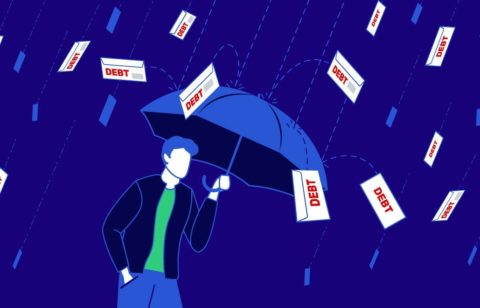If you’re having a serious problem with debt and especially if you’re being hassled by a collection agency, it’s important that you know about two laws – the Fair Credit Reporting Act and the Fair Debt Collection Practices Act.
The Fair Credit Reporting Act (FCRA)
You just about have to be an attorney or maybe a member of Congress to wade through the entire FCRA. But the short form version is that it gives you certain rights when it comes to your credit and credit report. For example, it gives you the right to know if any information in your credit file (report) has been used against you and the right to know what’s your file. You have the right to ask for a credit report (more about this later), to dispute incomplete or inaccurate information and you must give your consent your for reports your employers to get your reports. And last but not least, you can seek damages from companies that violate your right under this law (Note: for more information about the FCRA.
The Fair Debt Collection Practices Act (FDCPA)
You don’t have to be hassled day after day by an unscrupulous debt collector. The Fair Debt Collection Practices Act protects you from this. The short form summary of this act is that a debt collector cannot call you before 8 AM and after 9 PM at night. He cannot contact you at work unless you have given him permission to do so. He cannot lie to you, discuss your debt with friends or relatives or represent himself off as an attorney if he’s not. (Note: You can read more about this act at https://www.consumer.ftc.gov/articles/debt-collection-faqs).
What The FCRA means to you
The gist of this act is that the three credit reporting bureaus (Experian, Equifax and TransUnion cannot withhold your credit report and, in fact, must give it to you free once a year. You can contact them individually or get all three of your reports free at the site www.annualcreditreport.com. And you should definitely do this. The Federal Trade Commission (FTC) recently reported that one in five Americans have errors in their credit reports that could be hurting their credit scores. The only way you’ll know if there are errors in your reports is to get all three and then review them carefully. If you do find errors, the FRCA mandates that you must be given the opportunity to dispute them.
The right to seek damages
One of the most powerful parts of the FDCPA is it says you can send a “cease and desist” letter to any debt collection agency that is hassling you. Once you send an agency this letter, it is not to contact you again. If they continue to do so, you can file a complaint with your state’s Attorney General’s office or even sue for damages – up to a total of $1,000.
Know your rights
While our Congress may not get everything right, it did a pretty good job with these two acts. If you’re having a problem with your credit report or being harassed by a debt collector, be sure to look up these two acts so you’ll know your rights.





